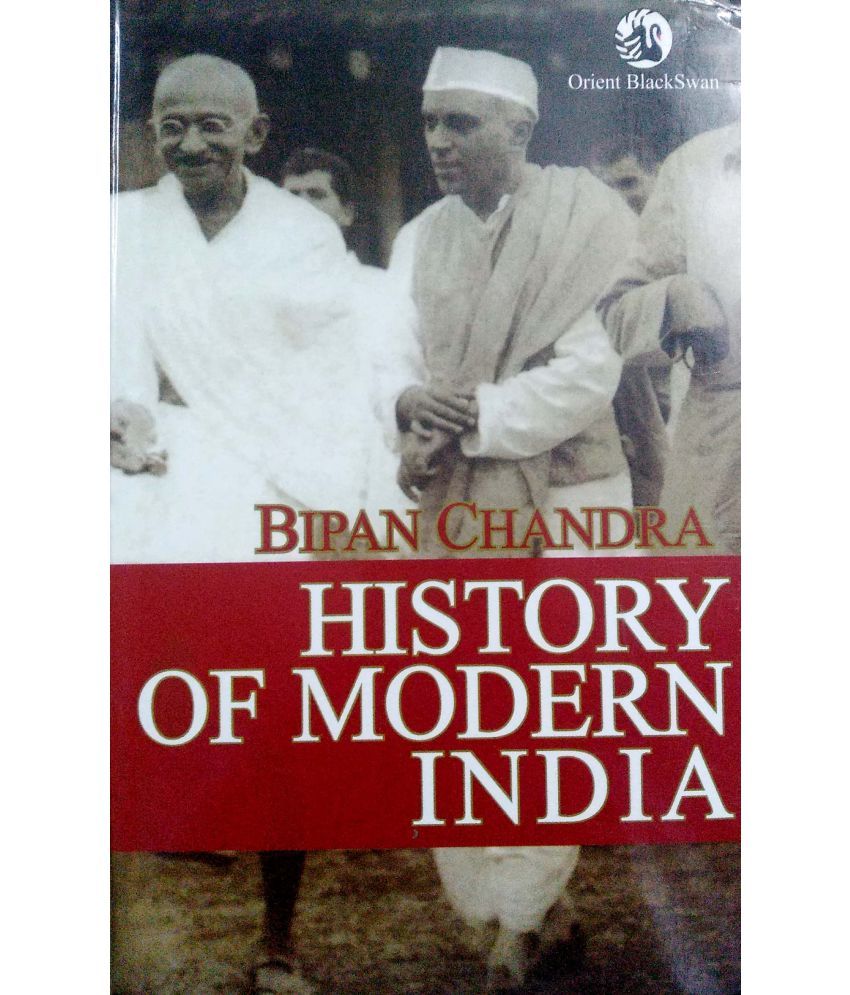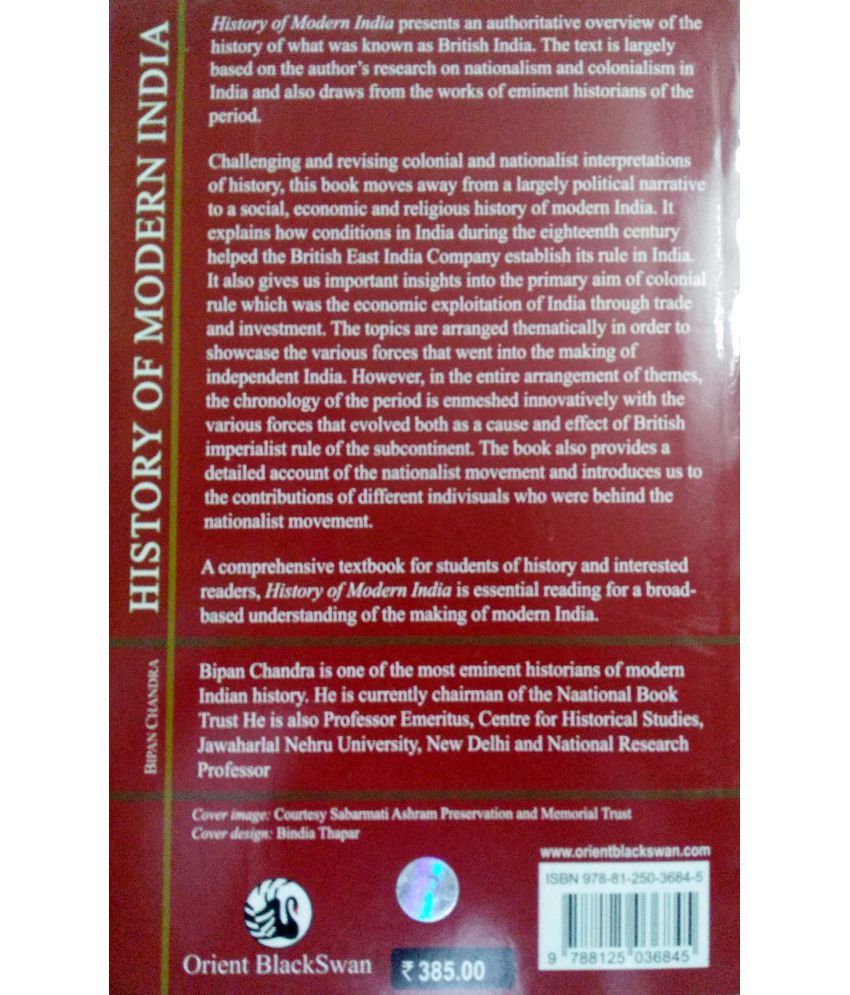History of Modern India is one of the famous books of Bipin Chandra. This book was published by Orient Blackswan in 2009. This book is a journey mapping the path of colonial India in from the eighteenth century to the twentieth century. It traces the timeline of British rule which majorly coincides with the modern Indian history. However, this is not a political narrative of the British rule, the freedom struggle and the Independence. Rather, this book is a social understanding of the factors that allowed British rulers to rule over India for such a long span of time. It tries to understand what the social effects of the rule were. How the small villages and corners of India was affected by a power that was controlled from Europe. What did this rule bring for the Indians to make their lives better? How did the colonized people perceived, behaved and reacted to the foreign rule? These are some of the questions famous Historian and Former JNU faculty, Late Bipin Chandra have tried to answer through his own understanding on the matter combined with oral and written references.
This book is a product of Chandra's own research on nationalism and colonialism in India. So here you will not only find all that had happened politically, but also socio-economic aspects like what did the general people understood and did about this rule? He uses an innovative chronology; he deals with causes as well as the effects of this reign over India. While you read the book, nationalist movement certainly becomes the main storyline, but the anecdotes and parallel stories of what was going through the lives that just wanted to get by each day without any trouble are interesting. You can easily understand what and how the social hidden narratives went during that time. This is not the only accurate description of Modern Indian history, but this is much closer to the everyday reality of those who lived between 1700s-1947 in India. This book is a recommended read for the students who are preparing for civil services with "history" as an optional paper. It is also recommended for other History enthusiasts and academies.
Review
The book is relatively concise when compared to books on the same topic by other authors. It captures the holistic view of not only struggle for independence but also the later Mughal period (post Aurangzeb), the decline of central authority, rise of regional satraps and the domination of tribes from Afghanistan. Those who are preparing for Civil Services should definitely go through this book twice or thrice, especially as in the new pattern the history syllabus will begin from the mid-18th century instead of mid-19th century, as was the case earlier. --Kavinder Negi on 06 Mar 2013
this book gives a brief description about the events happened chronologically and so easy to get the writings of the author... one should read it --Ankit Bala on 22 Feb 2015
It is the must book for all IAS aspirants. Written in very Lucid language, like a story very interesting to read. This book made history easy for student like me of engineering background. --Abhi Sinha on 07 Feb 2015
About the Author
Bipan Chandra is a renowned author and historian from India. Apart from this book, Chandra has written a number of other books, and they include Essays on Colonialism, The Epic Struggle, Communalism in Modern India, The Rise And Growth Of Economic Nationalism In India: Economic Policies Of Indian National Leadership, Indian National Movement: The Long Term Dynamics, and In The Name Of Democracy: The JP Movement And The Emergency. Chandra was born in Himachal Pradesh, and he completed his schooling from Forman Christian College in Lahore. He completed his degree from Stanford University, USA, and went on to earn a doctorate from the University of Delhi. For several years, Chandra served as a professor at Hindu College, Delhi. Later, he taught history at Jawaharlal Nehru University. In the year 1985, he was selected to be the General President of the Indian History Congress. He has also served as the Chairman of the National Book Trust, New Delhi. Chandra has also been a part of the University Grants Commission, New Delhi.

